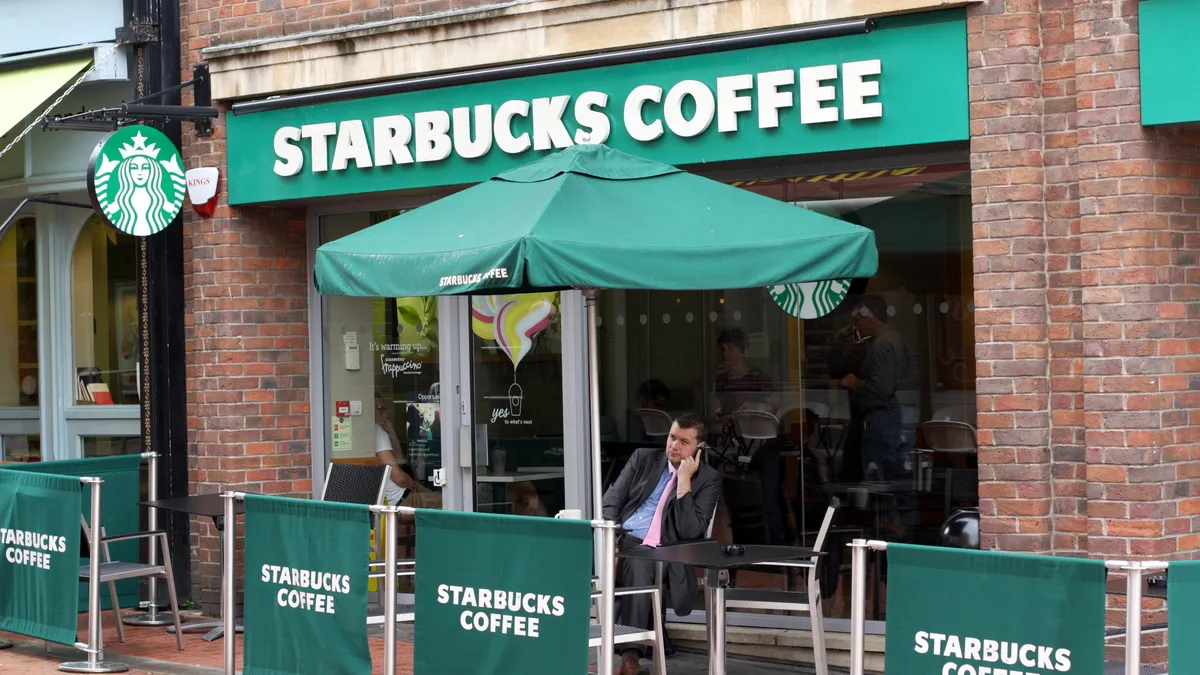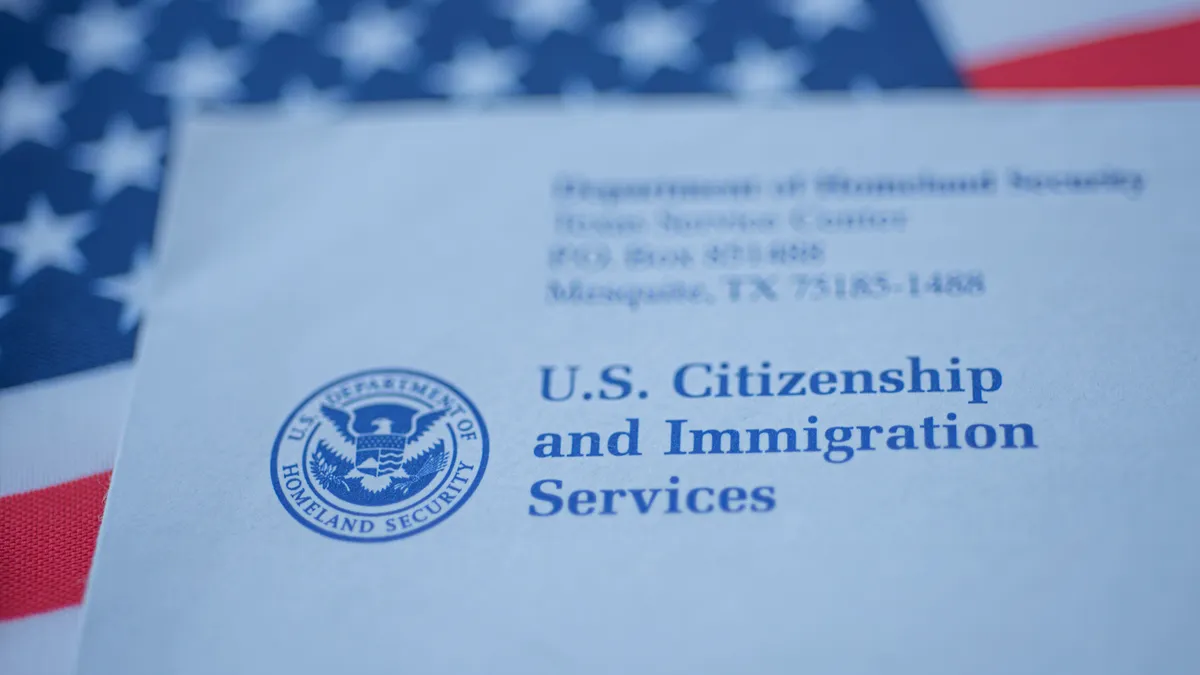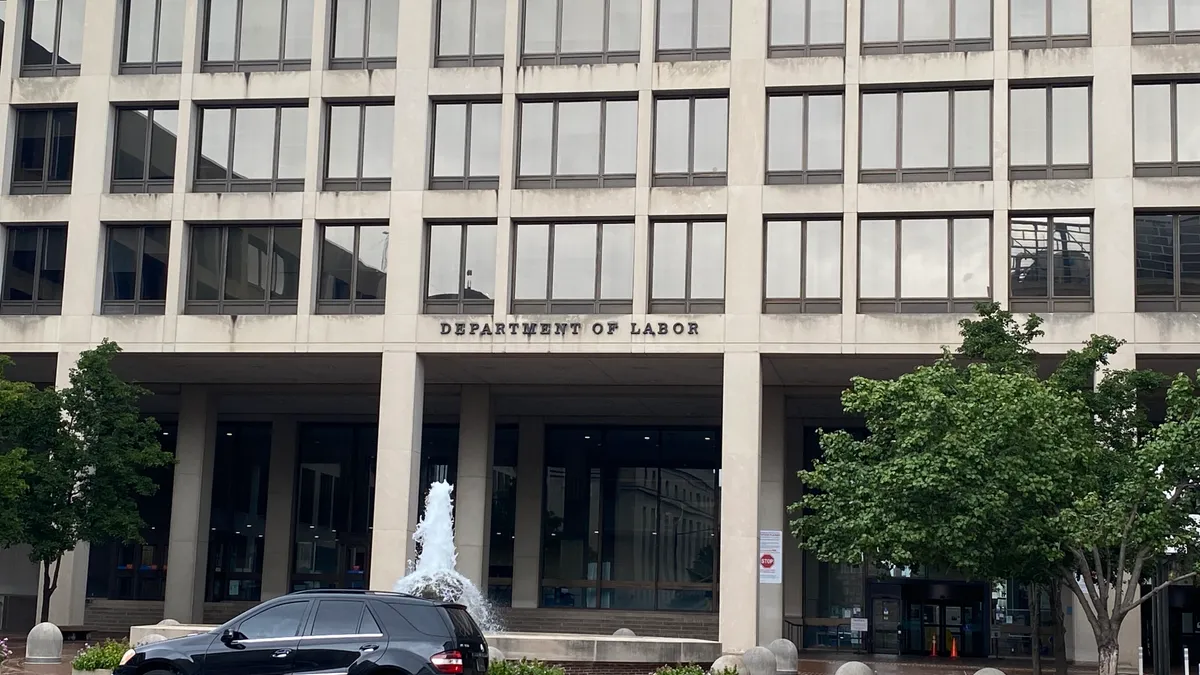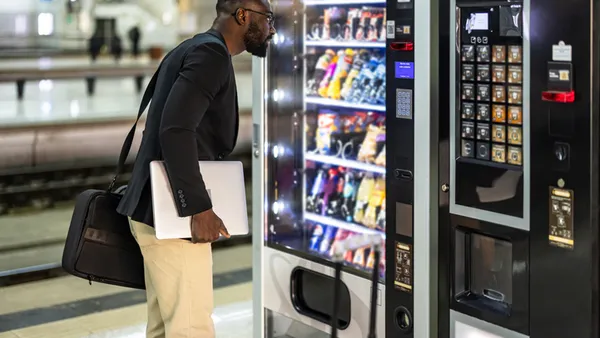Dive Brief:
- Starbucks will be closing its 8,000-plus U.S. stores and its corporate office for "several hours" on May 29 to conduct racial-bias training for its employees, the company announced, grappling with the aftermath of the arrest of two black men at a Philadelphia store.
- The two men were arrested after a store manager called the police on them, ostensibly for trespassing, the Chicago Tribune reports, when video evidence shows the two men sitting and waiting for a third man who eventually arrives. CEO Kevin Johnson has called the treatment of the two men "reprehensible," the Associated Press (AP) reports; he met with the men, saying he wanted to apologize face-to-face. The manager who called the police no longer works at that store, AP reports.
- The curriculum will be developed alongside national and local experts, the company said, including leadership from the Equal Justice Initiative, NAACP Legal Defense and Education Fund, Demos and the Anti-Defamation League, as well as former U.S. Attorney General Eric Holder.
Dive Insight:
The event has put Starbucks, known in employer circles for its progressive employee policies, on its back foot — an example to employers everywhere of how damaging these events can be for company brand even when you have, as Alan Murray of Fortune calls it, "a reservoir of good will."
The Starbucks event is certainly an example of accountability in action, as company leadership has taken multiple steps to apologize and attempt amelioration for the event. Starbucks pins much of its brand — and many of its benefits offerings — on being an ethical employer, and accountability is a key part of that. More simply: A company has to put its money where its mouth is, especially in today's social media environment, or employees and customers the world over will see through any attempts to "be genuine."
The move involves some risk: the company stands to lose millions in revenue ($12 million, by MarketWatch's calculation) in a highly publicized shut down. Starbucks could have opted to complete the training in off hours, but likely wanted to send the message that they are taking the issue seriously enough to stop operations entirely for a few hours, at least.
The situation also illustrates the importance of a robust employee training program. A single, poorly trained employee can create a cascading problem for an employer. And while Starbucks perhaps could not have predicted this exact event in its original training program, managers need more specific training now than ever before, particularly when it comes to employee management and supervisory skills. According to a recent study, 45% of managers report they have never received formal management training. An investment in training today could prevent disaster in the future.














